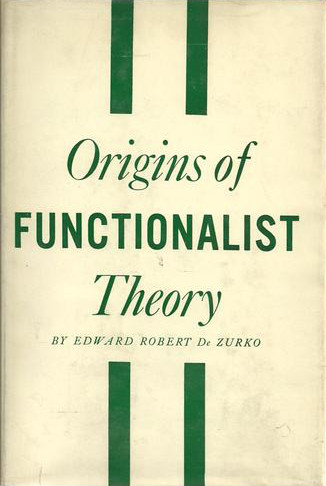Luciana Parisi: Contagious Architecture: Computation, Aesthetics, and Space (2013)
Filed under book | Tags: · abstraction, aesthetics, algorithm, architecture, cognition, computation, computing, cybernetics, design, evolution, feedback, infinity, information, interaction design, knowledge, media, metaphysics, networks, neural networks, philosophy, processing, randomness, sensors, software, space, temporality, time, topology, variation

“In Contagious Architecture, Luciana Parisi offers a philosophical inquiry into the status of the algorithm in architectural and interaction design. Her thesis is that algorithmic computation is not simply an abstract mathematical tool but constitutes a mode of thought in its own right, in that its operation extends into forms of abstraction that lie beyond direct human cognition and control. These include modes of infinity, contingency, and indeterminacy, as well as incomputable quantities underlying the iterative process of algorithmic processing.
The main philosophical source for the project is Alfred North Whitehead, whose process philosophy is specifically designed to provide a vocabulary for “modes of thought” exhibiting various degrees of autonomy from human agency even as they are mobilized by it. Because algorithmic processing lies at the heart of the design practices now reshaping our world—from the physical spaces of our built environment to the networked spaces of digital culture—the nature of algorithmic thought is a topic of pressing importance that reraises questions of control and, ultimately, power. Contagious Architecture revisits cybernetic theories of control and information theory’s notion of the incomputable in light of this rethinking of the role of algorithmic thought. Informed by recent debates in political and cultural theory around the changing landscape of power, it links the nature of abstraction to a new theory of power adequate to the complexities of the digital world.”
Publisher MIT Press, 2013
Technologies of Lived Abstraction series
ISBN 0262018632, 9780262018630
392 pages
For a New Computational Aesthetics: Algorithmic Environments as Actual Objects lecture by Parisi (2012, video, 72 min).
Reviews: Lecomte (Mute, 2013), Ikoniadou (Computational Culture, 2014).
PDF (24 MB, updated o 2021-10-28)
Comments (2)Edward Robert de Zurko: Origins of Functionalist Theory (1957)
Filed under book | Tags: · aesthetics, architecture, art, beauty, functionalism, history of architecture, machine, nature, rationalism, theory

“The main purpose of this book is to study the idea of functionalism from a historical point of view. The research media are the literary sources of functionalism. Early functionalist trends in writings on architecture shall be analyzed and compared with each other and with modern interpretations of the concept. By means of this essentially semantic study I hope to demonstrate (1) the antiquity of functionalist ideas, especially the tendency to connect ideas of use with ideas of beauty; (2) the variety of guises assumed by this type of theory; and (3) the recurrent ideas which have generally characterized functionalist theory.” (from the Introduction)
Publisher Columbia University Press, 1957
265 pages
via Charles
PDF (9 MB)
Comment (0)Svetlana Boym: Architecture of the Off-Modern (2008)
Filed under book | Tags: · aesthetics, architecture, avant-garde, history of architecture, modernism, utopia

“Svetlana Boym’s Architecture of the Off-Modern is an imaginative tour through the history and afterlife of Vladimir Tatlin’s legendary but unbuilt Monument to the Third International of 1920. Generally considered to be the defining expression of architectural constructivism, the structure was envisioned as a towering symbol of modernity and a twisting, turning memorial and media center for the Bolshevik Revolution that would have dwarfed the Eiffel Tower. Boym traces the vicissitudes of Tatlin’s tower from its reception in the 1920s to its privileged recall in ‘the reservoir of unofficial utopian dreams’ of the Soviet era. Boym offers an alternative history of modernism, postulating the ‘architecture of adventure’ as a poetic model for ‘third-route’ thinking about technology, history, and aesthetic culture.”
Publisher Buell Center / FORuM Project, and Princeton Architectural Press, NY, 2008
ISBN 1616891033, 9781568987781
80 pages
Review: Brian Dillon (Frieze, 2008).
Comment (0)
